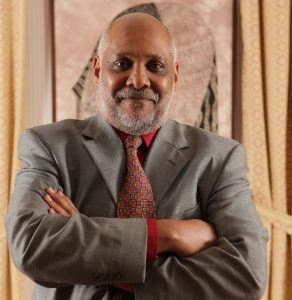Fiata to highlight Africa’s investment challenges

Infrastructure gap in freight and logistics hinders the continent’s projected growth
Lack of efficient infrastructure in Africa cuts about 2,6 percent off the continent’s average per-capita growth rate, according to Celeste Fauconnier, sub-Saharan Africa economist at Rand Merchant Bank (pictured above), who is scheduled to deliver a presentation on the subject next month in Cape Town at the International Federation of Freight Forwarders’ Association (Fiata) World Congress.
“Africa’s annual infrastructure need is US$ 130 billion to US$ 170 billion – and there is not enough capital available in the continent to achieve this. In short, the lack of efficient infrastructure is one of the highest hurdles to business in Africa,” Fauconnier says.
However, she adds that the obstacle presents an opportunity for businesses involved in the development or financing of infrastructure projects. “Developing infrastructure is synonymous with developing Africa and has the potential to unlock enormous growth,” she says.
FIATA Logistics Academy chairman, Issa Baluch, says Africa has the potential to become a prominent investment destination, as young people make up 70 percent of the population, which amounts to about 1,1-billion people. “Along with this, globally 60 percent of arable land is in Africa, coupled with just 15 percent of water usage on the entire continent and an abundance of minerals – these are main drivers for investments,” he says.
Baluch adds that the continent has a lot to learn from countries in East Asia. “Countries that have placed logistics and freight at the top of their agendas include the UAE, Singapore, China and India. The right policies focusing on supporting this sector have greased the wheels of commerce for inbound and outbound trade. Open-sky policies, single window, currency digitisation and freedom of movement of people, cargo and currency will bolster the economy on the continent.”

However, Baluch points to some key challenges in securing investments in Africa. “While the Africa Free Trade Zone (AFTZ) is a game changer, the challenge is to match its political drive to practical implementation across the continent. There are 54 countries in Africa, each with varying trade policies.”
Fauconnier adds: “The challenges to infrastructure development are weak legal, regulatory and institutional frameworks, poor infrastructure planning and project preparation, ineffective governance and corruption.
“One of the consequences of these challenges is limited private-sector involvement. In order to build well-targeted infrastructure connecting African economies to global value chains, it is essential to have governments that are dedicated to the task.”
Baluch is confident that the benefits are substantial for investors who are considering investing in Africa’s freight and logistics industry. “As the lion economy awakes, early starters to this sleeping giant have an opportunity to derive long-lasting benefits,” he says.
According to Stephen Morris, acting director general of Fiata, securing investment will be critical to increasing Africa’s logistics and freight-forwarding capacity. “This is vital in order to build a solid infrastructure, while ensuring industrialisation is inclusive and sustainable. The future of the continent, in terms of growth and economics, is dependent on this.”
Both Fauconnier and Baluch will be speaking at the annual Fiata World Congress to be held at the Cape Town International Convention Centre from October 1 to 5. The event has been organised in conjunction with the South African Association of Freight Forwarders (SAAFF) and will serve as an international platform for industry leaders to discuss sustainable solutions within the freight forwarding and transport sector in Africa.
Published by
Focus on Transport
focusmagsa



